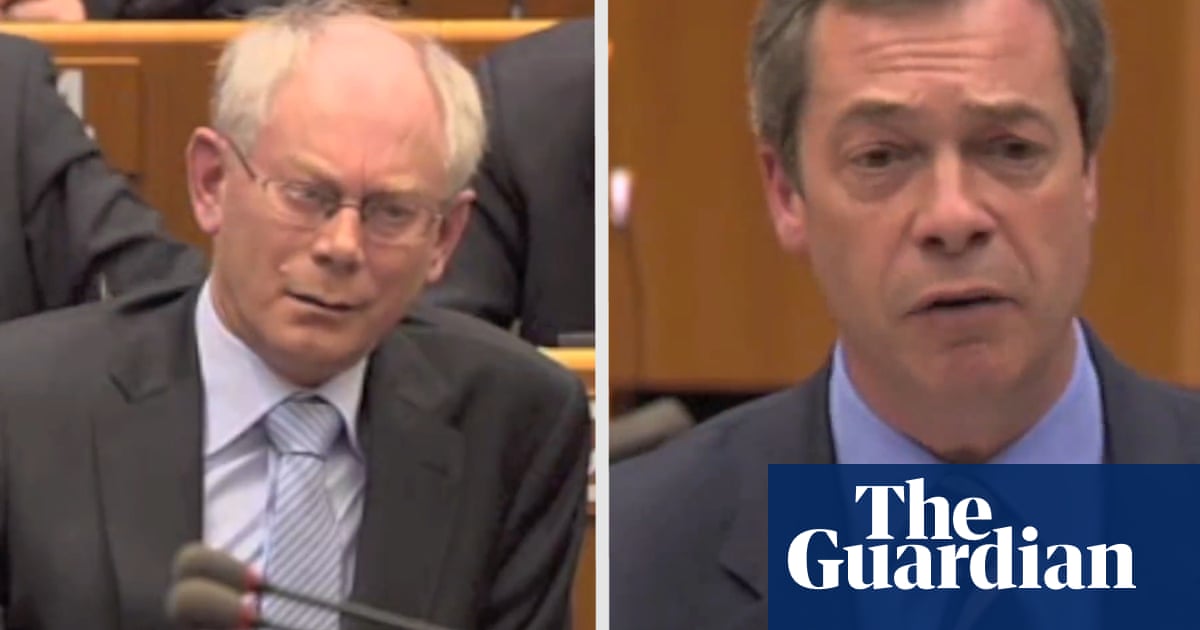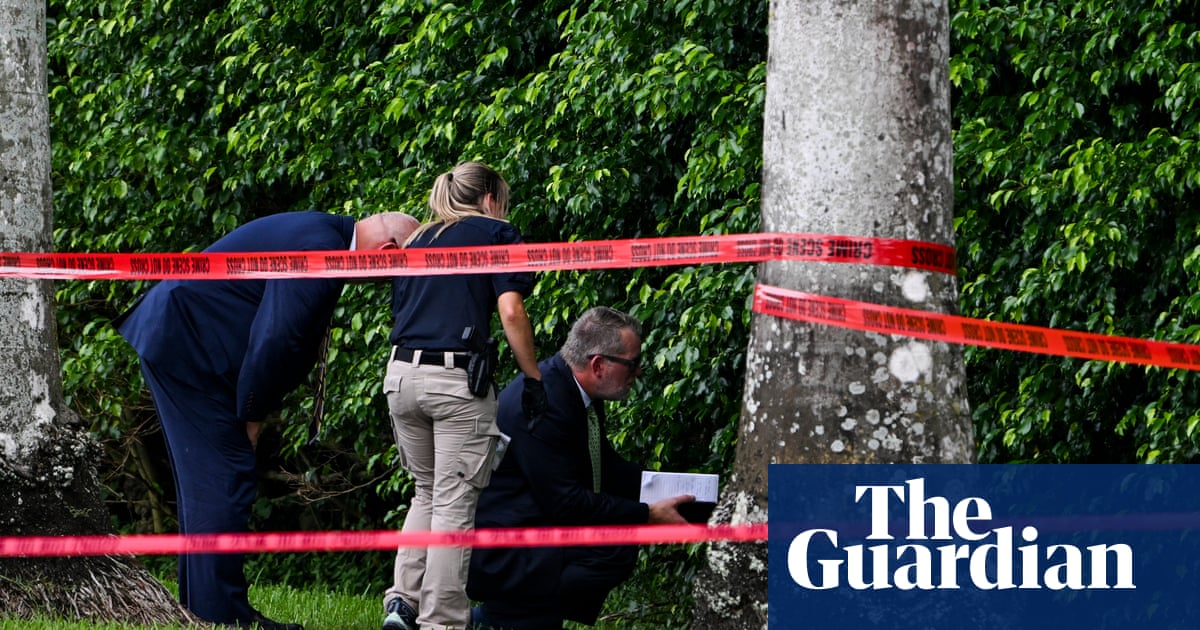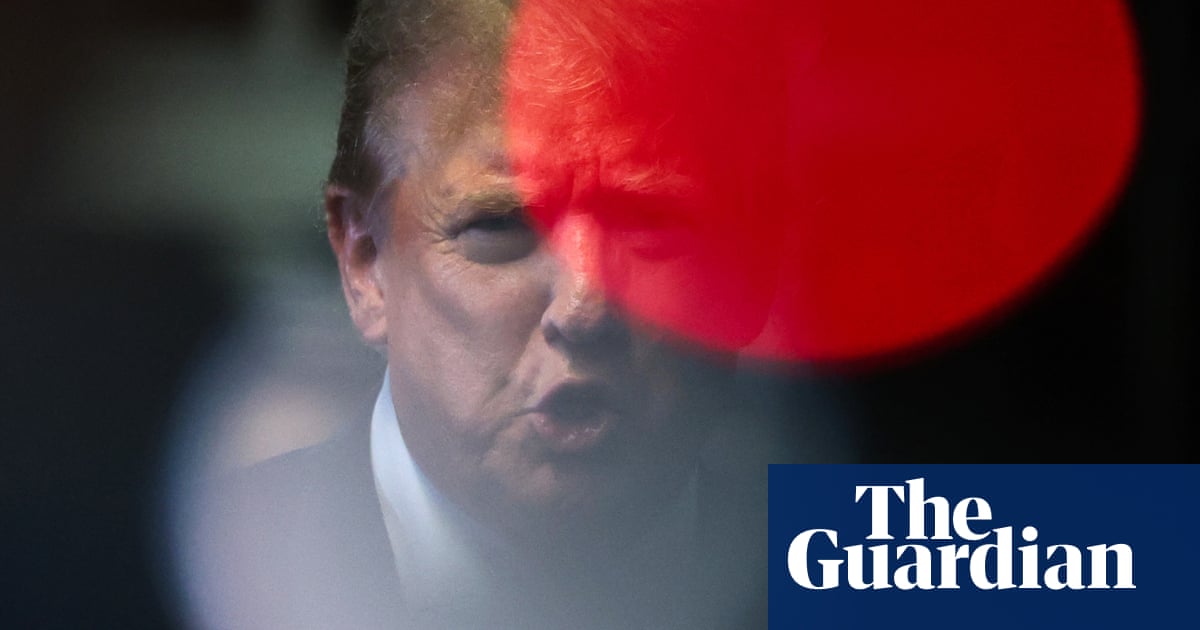It was the speech that made Nigel Farage’s reputation: inflammatory, insulting and riddled with distortions. Speaking on the floor of the European parliament, Farage addressed Herman Van Rompuy, an erudite, softly spoken former Belgian prime minister, appointed to the new post of European Council president. “I don’t want to be rude,” Farage began. “But, really, you have the charisma of a damp rag and the appearance of a low-grade bank clerk and the question I want to ask is: ‘Who are you?’”
Van Rompuy’s job was to chair meetings between EU leaders, rather than, as Farage put it, be “the political leader for 500 million people”. Amid heckles and boos in the far-from-full Strasbourg chamber, Farage said Van Rompuy’s intention was to be “the quiet assassin of European democracy”, before going on to insult the Belgian’s home nation as “a non-country”.
The new MP for Clacton, who was sworn in on Wednesday, is not likely to get away with such unparliamentary behaviour in the House of Commons. (Farage was fined for the attack on Van Rompuy in 2010.) But allies and EU officials agree it was that 1 min 24 sec speech in 2010 that propelled him to public attention – and notoriety – all across Europe.
“Suddenly the media sat up and took notice,” said Gawain Towler, Reform UK’s head of press, who has been working with Farage for 20 years. “That really put Nigel Farage on the map,” he said, recalling “hundreds of thousands of views” on Greek, Italian and Dutch YouTube.
For EU insiders, the insults were not a surprise. “It was the usual stuff,” said Guy Verhofstadt, the veteran Belgian MEP, who is standing down from the European parliament and was in the chamber that day. “His style of debating was always like that,” Verhofstadt said. “What he did was attack everybody that stood for Europe. You could know from the start of the debate what he was going to say.”
But it took time for the Ukip MEP to craft his style.
Farage was first elected to the European parliament in 1999, benefiting from proportional representation, introduced by Tony Blair for the UK’s European elections that year. He was not yet the boisterous performer he would become, but his message was consistent. In one of his first speeches in 1999, his notes shake slightly in his hand as he urges the government to “leave this club and get into the real trading world”.
He and his MEPs were known for stunts: heckling, wearing protest T-shirts and fixing little union flags to their desks in the chamber. But they struggled to get the British media attention they craved. Towler – who along with a later Ukip leader, Paul Nuttall, once dressed up in a chicken suit for a photo opportunity about EU leaders’ alleged cowardice for not holding referendums on a treaty – complained that the British press ignored them.
The arrival of the European parliament’s streaming service in 2008 combined with the rise of social media was a gamechanger. Short, punchy clips of Farage haranguing European politicians went viral on social media, getting far more views than the EU’s official channels at that time.
Richard Corbett, a long-serving Labour MEP, recalls initial puzzlement over speeches from Farage and his Ukip team. “They’d get up and start doing a rant about something that had sometimes nothing to do with what was on the agenda, it was completely out of context … but of course, the reason was that it was geared to making a YouTube clip.”
In their occasional meetings on trains or planes, Corbett recalls someone who was “chatty” but “tried to avoid getting caught into discussing facts, figures”. EU civil servants remember a disrespectful attitude: “It was clear that he despised the civil servants, he despised any rule or custom,” said one former civil servant. “His demeanour was very dismissive, unpleasant.”
“He never did any proper work,” the person added. “He was really just there to disrupt things.”
He had frequent run-ins with officials over expenses – and was docked half his MEP salary in 2018 over allegations of misuse of public funds. And he appointed a woman he met in a Strasbourg bar, long rumoured to be his girlfriend, to a job as a parliamentary researcher.
after newsletter promotion
While the chamber was an important stage, Farage made no impact in the committee rooms, where the legislative work was done. Over a three-year period, he attended only one of 42 meetings of the parliament’s fisheries committee when it was negotiating decisive reforms. In 2014-2016, he took part in four in 10 European parliament votes, the worst voting record of all British MEPs.
For the anti-EU party, that was the point. Farage and his MEPs “were voted [in] to fight it, not to take part in it”, Towler said. “And they won. In 2016, they won.”
As an MP, Farage will face new demands from his 78,000-strong constituency in Clacton. “The one thing we know from his time as an MEP is that he likes being in the limelight,” Simon Usherwood, a professor of politics at the Open University, said. “He is not a great paperwork guy.”
Towler, Reform’s spokesperson, said Farage saw his constituency work as “absolutely vital”, as was “ensuring you had a good team of caseworkers who can pick it up and do the job”.
Usherwood will also be watching to see whether Farage and the other Reform MPs join House of Commons committees. “He could justify not participating in the life of the European parliament because he rejected its legitimacy and its authority, but clearly he can’t do that with Westminster,” Usherwood said.
The jury is out, he added, on whether Farage tries to be “constructive and useful” or uses his seat “as a platform for protest”.
“I can imagine that [Farage] wants to be seen as being in parliament and speaking from the green benches. It is going to be part of that curation of an aura of respectability, which is presumably the next stage of his plans for getting ahead in the world.”



